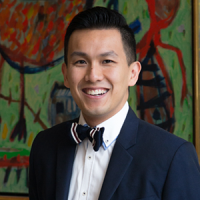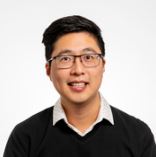Articles / Assessing sleep disorders — key questions to ask

Day time sleepiness is not just a risk for driving and workplace accidents, it affects long-term health including blood pressure, stroke and heart disease risks, so it’s vital that the root causes of poor sleep are recognised and treated.
When looking for potential causes of poor sleep, sleep apnoea is often the first that comes to mind. However, Sydney-based sleep physician Dr Anup Desai says there are a myriad of other possibilities.
Sleep physician Dr Anup Desai recently recorded two Healthed podcasts on Sleep Basics.
He says taking a good sleep history is key to finding the root cause.
Sleep history: questions to ask
“I think there’s three aspects when you take a history with patient. I think you need to ask about sleep timing and duration, … you need to ask about excessive daytime sleepiness and thirdly, you need to ask specific questions regarding specific conditions that are known sleep disorders,” he says.
“Just those four anchor points in a sleep history give us so much information. So, for instance, let’s say they go to bed and they’re awake for a few hours so they’re not falling asleep for some time. Well, you’ve already identified a bit of an insomnia issue.
“It they say they wake up at four in the morning and get out of bed at six…again, you’re identifying sleep maintenance insomnia.
“Let’s say they go to bed at about two in the morning, fall asleep at 2.30, get up around midday. Maybe there’s a sleep phase condition here like a delayed sleep phase disorder.”
“If they say they’re only in bed for five hours and have to go to work early … they’re sleep restricted,” Dr Desai says.
And by asking those four questions “you start to identify so many of these non-respiratory sleep disorders.”
Another important question to ask is ‘when did this begin?’
“If they’ve been sleepy ‘all their life’ or from their teenage years to their 20s, falling asleep in lectures at university, not going to social engagements because they’re too sleepy or sleeping the whole weekend, that very much suggest conditions like narcolepsy or primary hypersomnolence conditions rather than something like obstructive sleep apnoea which is more common in middle age.”
Certain medications, neurological conditions, and mental health conditions like anxiety and depression can also impact on daytime sleepiness, Dr Desai says. And of course, it can be multifactorial.
Frequent arousals overnight are another thing to consider. These arousals can be ‘micro’, where the patient doesn’t even know they’ve woken up, or ‘macro’ which is when they remember waking. Both cases can affect quality of sleep.

Diagnosing sleep apnoea
“If someone has obstructive sleep apnoea, for instance, their brain is waking up constantly, and not uncommonly, the patient will say ‘I sleep fine doctor’, but in fact, we know their brain is waking up to the apnoea, but they’re only waking up for three, five, maybe 10 seconds and then going back to sleep and not remembering the arousals. But of course, it’s that fragmentation of sleep, the micro arousals, that’s causing the sleepiness during the day in conditions like obstructive sleep apnoea,” he says.
Dr Desai says often there are multiple factors and comorbidities involved.
Sleep anxiety and insomnia
One hallmark feature of insomnia is fear of sleep or ‘sleep anxiety’, he says.
“A lot of people say they get they’re too frightened to go to sleep because they know they’re just going to be a lie awake … and the whole thing becomes very unpleasant and frustrating and anxiety provoking. But it also tells you that there’s really strong cognitive aspects to the insomnia.”
When fear and anxiety kick, good sleep hygiene (no screens in bed, regular bed and waking times etc.) can only go so far and the gold standard is cognitive behavioural therapy for insomnia or CBTi. If the patient can’t access a face-to-face consult with a therapist for this, there are various online programmes that can help, Dr Desai says.
It’s also important to know what medications or non-drug treatments they’ve tried and whether or not they’ve built up bad sleeping habits.
“Many people when they can’t sleep with insomnia think ‘I got only got two hours sleep last night, I’m going to go to bed at 6pm tomorrow night. I’m going to be in bed for 12 hours, I’m bound to sleep and I’ll be good’. But of course, that’s the exact wrong thing to do,” Dr Desai says.
“All they do is lie in bed for longer periods awake and their sleep becomes more inefficient and they build up the ‘wakefulness response’ and anxiety and frustration. And they feel like they’ve lost control.”
One quick win, Dr Desai says, is if the patient mentions restless legs. Restless leg syndrome can be a cause of insomnia and if patients say this stops them from getting to sleep “that’s actually fantastic, because that’s a really easy condition to diagnose and treat.”
Some conditions should be referred to a sleep specialist. These include parasomnias like sleepwalking, sleep terrors or REM behaviour disorder, where people act out their dreams, and conditions like narcolepsy where lab-based sleep tests can be useful in diagnosis.
Medicolegal risks
Dr Desai warns against home testing and says if a doctor has referred a patient for a test and a home use CPAP machine has been provided, it is the GPs responsibility to continue to manage and monitor the sleep condition, because the device provider’s role ends when the device arrives.

“I think the key is you don’t order a chest X ray or a CT and expect the radiologist company to manage your patient.”
He also says doctors must advise their patients about the dangers of driving or operating machinery. A useful lab-based test to assess fitness to drive is a ‘maintenance of wakefulness test’ where you measure a patient’s alertness in the lab.
“These alertness tests give some objective evidence that they’re fit to drive,” Dr Desai says.
He adds it’s vital that the GP document what they have told their patients.
“If the GP hasn’t … and that person then has an accident the patient can quite reasonably say, ‘Well, I’m not the doctor. He didn’t say anything about driving. How am I supposed to know? I fell asleep. That’s not my problem. Go and talk to the doctor.’”
Dr Desai says patient’s must be aware of the risk and the relevant driver’s licence authorities informed.
“If we don’t ask the questions, or address it, or think about it, and document it, and something happens, I think we’re liable.”
To hear more, listen to Dr Desai’s healthed podcasts on sleep basics.
Tip: The Epsworth Sleepiness Scale is useful a useful tool for assessing sleep quality. It provides a qualitative benchmark.
Based on this educational activity, complete these learning modules to gain additional CPD.

RSV Prevention in Infants and Pregnant Women

STIs – Common and Tricky Cases

Role of Testosterone During Menopause - Evidence vs Hype

Vision and Driving Fitness: Key Insights for Health Practitioners
Yes
No
Listen to expert interviews.
Click to open in a new tab
Browse the latest articles from Healthed.
Once you confirm you’ve read this article you can complete a Patient Case Review to earn 0.5 hours CPD in the Reviewing Performance (RP) category.
Select ‘Confirm & learn‘ when you have read this article in its entirety and you will be taken to begin your Patient Case Review.
Menopause and MHT
Multiple sclerosis vs antibody disease
Using SGLT2 to reduce cardiovascular death in T2D
Peripheral arterial disease
